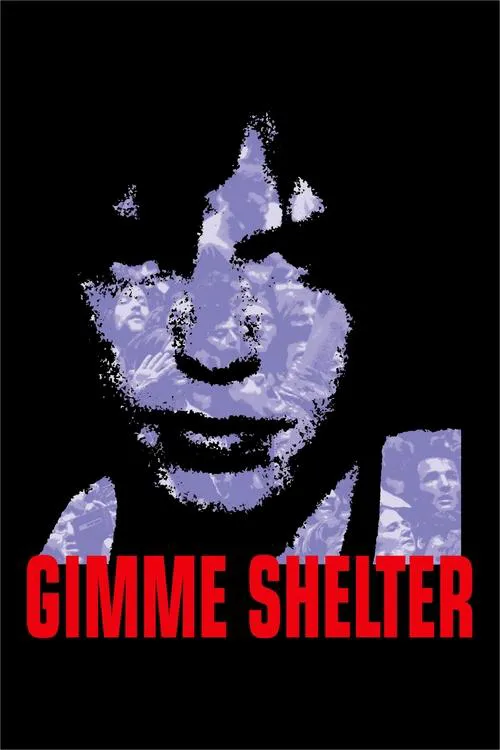Gimme Shelter

Plot
Gimme Shelter chronicles the American tour of The Rolling Stones in 1969, a journey marked by excitement, anticipation, and eventual catastrophe. The tour, which kicked off in October of that year, set out to capitalize on the band's immense popularity in the United States. The Rolling Stones, who had just released their album 'Let It Bleed,' featuring hits like 'Gimme Shelter' and 'Midnight Rambler,' were at the height of their fame. The tour aimed to bring the Stones' unique brand of music, blending blues, rock, and folk, to the masses. As the tour progressed, the band members, consisting of Mick Jagger, Keith Richards, Brian Jones, Bill Wyman, Mick Taylor, and Charlie Watts, were joined by keyboardist Rocky Dijon and guitarist Mick Taylor. The setlists for the concerts were carefully curated, featuring a mix of classic Stones tracks, covers of blues songs, and new material from the 'Let It Bleed' album. However, things took a dark turn when the band scheduled a concert at the Altamont Speedway Free Festival in California for December 6, 1969. The festival, which sought to emulate the free-spirited and counterculture-oriented vibe of Woodstock, a music festival held a few months prior, was to be a celebration of peace, love, and music. Initially, the Stones saw the prospect of performing at the Altamont festival as an opportunity to further the festival's mission of unity and social change. Keith Richards, in particular, envisioned the event as a way for the band to connect with a new, younger generation of fans. However, things started to go horribly wrong when they became entangled in the complex logistics of the festival. Despite the chaotic atmosphere, the band set foot on stage at Altamont around 5 p.m. on the day of the festival, and their performance began at around 3 a.m. After a series of delays and setbacks, which included equipment malfunctions, and technical issues, the concert finally got underway. However, the audience had become restless, agitated, and increasingly rowdy. The crowd, predominantly comprised of disaffected young men who had turned out for the free festival, began to clash with the festival organizers and security personnel. Violence broke out, with attendees attacking and intimidating those around them. Amidst this backdrop of chaos, The Rolling Stones took to the stage, but it soon became evident that their performance would not be without incident. The first sign of trouble came when the festival's security personnel, the Hells Angels, which were hired to handle security at the event, began to clash with the crowd. They eventually became violent, brandishing their guns, knives, and batons as they patrolled the grounds. The atmosphere had grown increasingly threatening, and the air was thick with anticipation of violence. The tension on stage reflected the chaos that had erupted outside. Jagger's voice, usually so smooth and confident, was strained by the pressure of the moment, as he struggled to maintain the composure required to deliver an outstanding performance. Richards and Wyman, too, were under enormous stress, but they refused to give up as they battled on to give their fans a memorable show. As the night wore on, and the performance continued into the wee hours of the morning, tragedy struck when 18-year-old Meredith Hunter was stabbed to death by a Hells Angel, just as The Rolling Stones were finishing their set. The news of Hunter's death sent shockwaves throughout the audience and beyond. It would be the final blow to the ideals of peace and love that had once defined the counterculture movement. In the aftermath of the event, the consequences of The Rolling Stones' involvement in the festival were stark. The incident marked the end of the free festival era, ushering in an era of growing disillusionment and a sense of disappointment that would haunt the counterculture movement for years to come. The film Gimme Shelter, directed by Albert Maysles, David Maysles, and Charlotte Zwerin, is a poignant documentary that chronicles the American tour of The Rolling Stones in 1969, including the disastrous concert at the Altamont Speedway Free Festival. By capturing the chaos, the intensity, and the tragedy of the event, the film provides a glimpse into the lives and experiences of the Rolling Stones during that pivotal moment in history. It captures the raw emotion and vulnerability of a band on the brink of chaos and destruction. Ultimately, the film serves as a testament to the darker side of the counterculture movement and the consequences of unchecked aggression, violence, and disillusionment. The performance at Altamont marked the end of the innocence and the free-spirited ideals that had defined the movement's early days. In its place was a sobering reality that the ideals of peace, love, and unity had become a distant memory, replaced by fear, disillusionment, and a sense of uncertainty. Gimme Shelter serves as a poignant reminder that even the finest ideals can fall victim to the destructive forces of violence, chaos, and the darker aspects of human nature. As a chronicle of a pivotal moment in rock music history, it provides a powerful glimpse into the turmoil, the passion, and the tragedy that defined the lives of The Rolling Stones during that fateful and fateful night at Altamont Speedway.
Reviews
Recommendations




